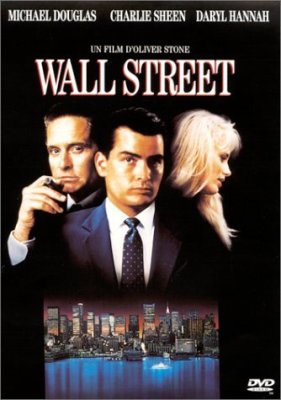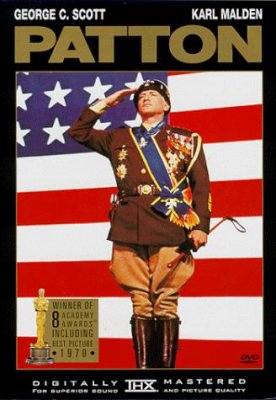Beatles ‘Revolver’ song list and review
Posted: April 20, 2009
“Revolver” is regarded by many (though certainly not all) Beatles fans as the group’s best album ever. The album is a tight collection of experimental pop music that marked a further departure from the group’s original successful formula of radio-friendly love songs.
John Lennon and Paul McCartney are perhaps the most successful healthy competition the world has ever known. Each was gifted, but more than that, each wanted the other to excel, then wanted to top the other’s work.
The Beatles “Revolver” song list and reviews, in order:
1. Taxman (by George Harrison)
Opens with background grumbling, yawning, as though the band was just forced to begin the album — or just realizing that wealthy people such as themselves pay a lot of taxes. Wry humor throughout includes bipartisan references to British political leaders at the time Harold Wilson (Labour) and Edward Heath (Tory).
2. Eleanor Rigby (by John Lennon/Paul McCartney)
Mostly Paul McCartney’s work. A tribute to lonely people, remarkable in its use of string musicians (violin) while the Beatles don’t play a single instrument. A major turning point in band’s transition (already underway) from standard pop to deeper, reflective creations. Ranked 137 on Rolling Stone’s top 500 greatest songs of all time list.
3. I’m Only Sleeping (by John Lennon/Paul McCartney)
Not included on the U.S. vinyl version of the album. A whimsical work by John Lennon and a sign of the band’s mega-success, an apparent indulgent inside joke. Despite the drug influences on much of the album, apparently is a simple tune about dozing (Lennon would later write “I’m So Tired” for the White Album officially called “The Beatles”). George Harrison does the guitar solo.
4. Love You To (by George Harrison)
A very startling inclusion for its time. Notable not for its groove, which is awkward, but for signaling how broad the Beatles’ interests were becoming, particularly involving India. Actually the longest song on the album at 3:01 (tied with “I’m Only Sleeping”). George Harrison learned the sitar from Ravi Shankar and would contribue another similarly inspired song, and a seemingly more polished work, “Within You, Without You,” to the “Sergeant Pepper” album.
5. Here, There and Everywhere (by John Lennon/Paul McCartney)
A Paul McCartney production, representative of the type of gentle love songs he would later write for Wings. Almost feels too quiet, and its bittersweet nature is overshadowed by another epic track on the album. Yet, was a very popular tune among the band itself.
6. Yellow Submarine (by John Lennon/Paul McCartney)
More famous as the title track for the animated 1968 movie. An appealing child-like fantasy with psychedelic overtones. Written by Paul McCartney for Ringo Starr to sing, with parallels to the later “Octopus’ Garden” (written by Starr himself). Described as psychedelic pop, but at heart a children’s song.
7. She Said She Said (by John Lennon/Paul McCartney)
One of the most famous Beatles songs linked to drug experience. A John Lennon work, said by the band and Peter Fonda to be inspired by a frequent comment of Fonda “I know what it’s like to be dead” while the group took LSD in a frenzied California guest house. Added late, almost as an afterthought. A rare Beatles track on which Paul McCartney did not play, but the drumwork of Ringo Starr is highly regarded.
8. Good Day Sunshine (by John Lennon/Paul McCartney)
Effusive pop by Paul McCartney that bursts forth on Side 2 of the vinyl. Ends somewhat abruptly in a cascading chorus. A straightforward melody like “Yellow Submarine” that fits in with the blatant psychedelic references on other songs on the album.
9. And Your Bird Can Sing (by John Lennon/Paul McCartney)
Another track not on the U.S. vinyl version. Not a favorite of John Lennon, who wrote it, and likely the least noteworthy song on the album. Feels influenced by the band’s “Revolver” environment but seems more representative of the band’s standard material of a year or two earlier.
10. For No One (by John Lennon/Paul McCartney)
In this estimation, the greatest pop song of all time. Paul McCartney tells, in gentle terms of baroque pop, the horror of heartbreak, realizing the life you’ve invested yourself in is over, not to be recovered. The genius is the fraction-of-a-second opening chord that immediately sets the tone in a remarkably concise song lasting two minutes, one second, tied for shortest on the album. Lyrical anguish aside, the song simply passes away, and so will the feeling ... won’t it?
11. Doctor Robert (by John Lennon/Paul McCartney)
The third and final track not on the U.S. vinyl version. A John Lennon song with Paul McCartney contribution. Several overt drug references, though not nearly as famous nor psychedelic-sounding as other tracks on the album. Whether “Doctor Robert” was a real person or creation, no one is quite sure.
12. I Want to Tell You (by George Harrison)
Significant in marking the first time George Harrison placed three songs on a Beatles album. While the lyrics (“my head is filled with things to say”) could seem an indulgent inside joke about a lost conversation, they neatly represent life at breakneck speed the Beatles were experiencing at the time, a band receiving far more influences (wanted and otherwise) than anyone could hope to constructively digest and express.
13. Got to Get You Into My Life (by John Lennon/Paul McCartney)
Famous for the trumpets, the Motown appeal and the overt marijuana references that also suggest a romantic relationship. The capstone of Paul McCartney’s landmark contributions to this album, it brings Side 2 of the vinyl full circle from the optimism of “Good Day Sunshine” to the despair of “For No One” to this declaration for whatever it is that makes people feel good.
14. Tomorrow Never Knows (by John Lennon/Paul McCartney)
By the standards of the time, a grinding, relentless foray into psychedelia. Noteworthy as the first song recorded, yet placed last on the album as an indication of the experimental direction of the band. John Lennon’s famous voice, called by some the best in rock/popular music, is a steady and authoritative summary of life as a Beatle circa 1966. At least partly inspired by Timothy Leary. Title is not heard in the song, but stems from a Ringo Starr quip.
(Widescreenings.com generally sticks to film criticism, but happily makes an exception for this landmark album.)





